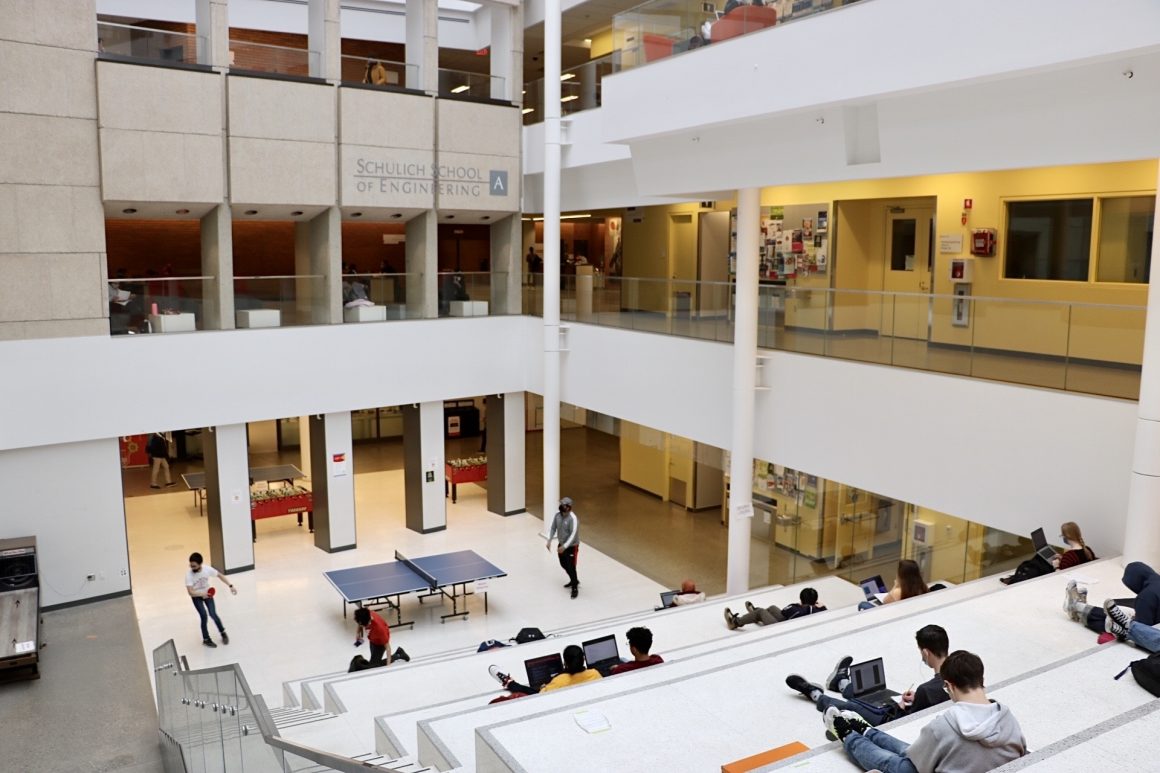
Board of Governors meeting approves exceptional tuition increases for a second time, discusses new engineering program
By Cristina Paolozzi, October 26 2021—
On Oct. 22, the University of Calgary’s Board of Governors met to approve the exceptional tuition increases for the Bachelor of Science in Engineering program, the Doctor of Medicine program and the Master of Business Administration program for the 2022-23 school year. The Board also introduced a new biomedical program in the Faculty of Engineering.
Dr. Teri Balser, provost and vice-provost academic at the U of C said that the tuition increase proposals are intended to provide program changes and improvements to the quality of education students receive at the university. She said that the three programs that were chosen to receive this increase were the programs that university administration felt would benefit the most from an increase.
One of the major points of contention from the last Board meeting, which happened in June, concerned the student consultation done around these tuition increases. Students’ Union (SU) President Nicole Schmidt stated previously that the 10-month consultation period as laid out by the provincial government was not adhered to, which ultimately affected students’ understanding and feedback on these tuition increases.
However, the Alberta government delayed the tuition increases, citing lack of consultation, however, Basler responded to this during the meeting, saying that the ministry actually did approve of the university’s consultation process.
“The feedback that we got from the ministry was that they approved of the consultation amount and what we had,” said Balser. “What they were concerned about was the timing of that consultation. As you may recall, we were in the middle of a leadership transition, and I was very brand-new and they wanted to extend that consultation period to include students at the start of the fall.”
Balser also said that the ministry was looking for additional detail about how the university was planning to spend the revenue they would be getting.
Schmidt gave a short presentation regarding the discussion that the Students’ Legislative Council (SLC) had the previous week, and said that while this tuition increase is not impacting current students, the tuition increases that have occurred over the past few years should not be looked at in isolation.
“This is the third tuition increase that has been brought forward since the end of the tuition freeze,” she said. “The university is asking students to pay significantly more at a time when students are struggling to find work and pay for basic living expenses during a pandemic. I do understand that the university is in tough financial straits — while every dime from the increases we’re discussing today must go towards program improvements, it doesn’t make these consecutive and large tuition increases less burdensome for students.”
While members of the Board stressed multiple times that these tuition increases would not be affecting current students enrolled at the university, Schmidt said that her presentation was also taking into consideration the seven per cent cap increases that have been imposed by the provincial government.
“These need to be looked at in tandem because they do affect students and they will affect students who start in Fall 2022,” said Schmidt.
Board of Governors representative Frank Finley made his concerns clear that increasing tuition lends credence to government arguments to further slash post-secondary budgets, as increased funding from new students will eventually make up the difference.
While the tuition increases were made in accordance with Alberta 2030 framework, Finley believes it isn’t necessarily in the best interest of the university to follow every mandate from the government.
“With respect to Alberta 2030 as a government document,” said Finley, “I’m not confident that the university constantly following what the government would like, explicitly when we do have some bits of autonomy, is the most positive way forward for us.”
The Board approved the exceptional tuition increases for all three programs, the vote being split between graduate and undergraduate programs. In both motions, 11 people approved the increases, and five people opposed them — members who opposed included Schmidt, Finley, Tanille Shandro, Graduate Students’ Association (GSA) president, Tavis Campbell, Faculty Association representative at the University of Calgary (TUCFA) and Lorinda Hammond, Alberta Union of Provincial Employees (AUPE) representative.
The Board also discussed the approval of the creation of a department of Biomedical Engineering at the Schulich School of Engineering at the undergraduate level.
“It’s building upon multiple decades of biomedical engineering research and graduate and now undergraduate education,” said Bill Rosehart, dean of the Faculty of Engineering. “We developed the proposal well over a year in terms of consultation to be able to maintain the real transdisciplinary nature of biomedical engineering, while also giving it a disciplinary route to be able to successfully deliver the new program.”
Dr. Michael Kallos, the director of the Centre for Bioengineering Research and Education, was present to discuss the program details and the proposal.
The new program is a collaboration between six faculties according to Kallos — Engineering, Medicine, Kinesiology, Veterinary Medicine, Science and Nursing. While there is a biomedical engineering program at the graduate level, and students have been able to declare a minor at the undergraduate level for the past 25 years, Kallos said there has been strong student interest for a bachelor’s degree for the past 18 years.
“We have our first class of 46 students moving through and the demand looks very strong for next year as well,” said Kallos. “What we need now is a formal home for biomedical engineering, to provide an anchor for undergraduate education, as well as the cross-campus graduate education and research.”
The Board voted unanimously to approve the creation of the new biomedical engineering program. The next Board of Governors meeting will take place on Dec. 10.
